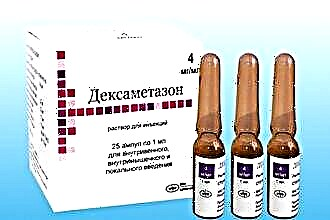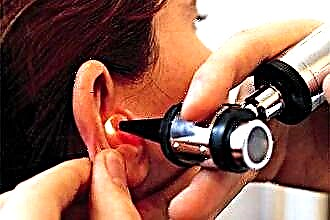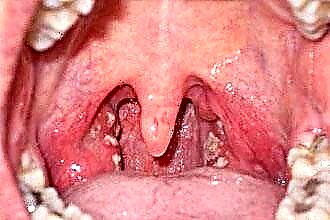 Treatment of laryngitis during pregnancy should be accompanied by the use of only safe drugs that do not affect the development of the fetus. And these funds, by the way, are not so much. According to statistics, approximately 63% of pregnant women with ARVI develop inflammation of the larynx.
Treatment of laryngitis during pregnancy should be accompanied by the use of only safe drugs that do not affect the development of the fetus. And these funds, by the way, are not so much. According to statistics, approximately 63% of pregnant women with ARVI develop inflammation of the larynx.
Due to the reduced resistance of the body, the infection progresses rapidly, affecting the upper and lower parts of the respiratory system. In the treatment of laryngitis, you can use only those drugs that are not able to be absorbed into the blood, overcome the placental barrier and affect the natural process of fetal development.
Treatment features
During gestation, i.e. carrying a child, experts recommend minimizing the intake of medicines. Most of them contain components that can negatively affect the development of the fetus and provoke pathologies. With laryngitis, it is impossible to completely abandon drug treatment, since the infection can damage the health of the unborn child even more than drugs.
How to treat laryngitis during pregnancy? To reduce the likelihood of penetration of the drug components into the systemic circulation, it is advisable to use topical preparations when treating inflammation in the larynx. For therapeutic purposes, antiviral, wound healing, antipyretic and antihistamines can be used.
To speed up your recovery, it is recommended:
- observe bed rest;
- refuse to use spicy and hot dishes;
- consume enough alkaline drinks;
- regularly gargle and inhale;
- to minimize conversations that create a load on the voice apparatus.
Against the background of a decrease in immune defense, the infection progresses very quickly, which entails the development of more serious pathologies - laryngotracheitis, pneumonia, acute bronchitis.
Like many other respiratory diseases, laryngitis poses a potential threat not only to the expectant mother, but also to the baby. Pathogenic microorganisms secrete toxic substances that poison the woman's body.
Severe intoxication can cause disturbances in the development of the fetus, in particular the cardiovascular and nervous systems. Therefore, at the first symptoms of laryngitis, it is necessary to consult a doctor and undergo the recommended course of drug therapy.
Antiviral agents
As a rule, laryngitis in pregnant women develops against the background of a cold or flu. To eliminate the infection in the respiratory tract, it is necessary to take antiviral drugs. In the first trimester of pregnancy, only certain types of drugs can be used that do not lead to abnormal development of the fetus.
The safest remedies to help kill viruses in the larynx and other parts of the respiratory tract include:
- "Oscillococcinum" - increases the immune defense and destroys most pathogens of viral diseases;
- "Viferon" - stimulates the production of interferon, which increases the activity of protective cells in the body;
- "Anaferon" - prevents the multiplication of viruses and relieves inflammation in the lesions.
The dosage and frequency of taking antiviral drugs depends on the duration of pregnancy and is determined only by the attending physician.
The above funds are available in the form of suppositories and tablets. During pregnancy, it is recommended to use medications in the form of rectal suppositories, since they do not irritate the gastric mucosa and practically do not cause side effects. Antivirals can be combined with other medications without fear of allergic reactions.
Inhalation
Inhalation is the fastest way to "deliver" drugs directly to the inflammatory foci. In order not to harm the fetus, but at the same time to stop inflammation in the larynx, it is better to use alkaline solutions as drugs. They normalize the pH level in mucous membranes and create unfavorable conditions for the reproduction of infectious agents.
For the procedure, aerosol and steam inhalations can be used. The safest are aerosol inhalations, which are performed with the help of nebulizers. To reduce inflammation and swelling of the larynx, you can use:
 "Ambrobene" - helps to eliminate barking cough, stimulates the separation of sputum from the walls of the mucous membranes;
"Ambrobene" - helps to eliminate barking cough, stimulates the separation of sputum from the walls of the mucous membranes;- Rotokan - relieves inflammation and swelling in the larynx;
- "Malavit" - relieves pain and relieves swelling from mucous membranes;
- "Dexamethasone" - relieves allergic manifestations and inflammation in the respiratory tract;
- "Furacilin" - destroys microbes and eliminates purulent inflammation in the larynx.
Inhalation should not be carried out on a full stomach, as this can provoke nausea and vomiting.
Inhalation has a pronounced anti-edema, wound healing and antitussive effect. Therefore, physiotherapy procedures must be repeated at least 4-5 times a day for a week.
Gargling
If laryngitis occurs as a complication of flu, SARS, colds or sore throats, it is best to use rinses to treat it. Irrigation of the larynx with drugs helps to increase local immunity, prevent the development of viruses and microbes, and, of course, speed up the healing process. Unlike systemic drugs, when washing the palatine tonsils and throat, drugs are practically not absorbed into the systemic circulation, therefore they do not harm the development of the fetus.
During gestation, it is best to use the following drugs for flushing a sore throat:
- "Miramistin" - disinfects mucous membranes and stimulates the regeneration of inflamed tissues;
- "Chlorophyllipt" - destroys microbes and fungi, washes out pus from the foci of inflammation;
- "Chlorhexidine" - restores the mucous membrane of the respiratory tract and increases local immunity.
In order not to burn the mucous membrane, to irrigate the throat, you need to use solutions with a temperature of no higher than 37 ° C.
In addition to pharmaceutical antiseptics, rinsing can be done with herbal decoctions. Thyme, lemon balm, chamomile, calendula, sage and St. John's wort have a pronounced anti-inflammatory and wound healing effect.
Cough remedies
Laryngitis is always accompanied by a spasmodic cough, which can be worse during sleep and upon awakening. When coughing, the abdominal muscles are overstrained, which can negatively affect the development of the fetus. Dextromethorphan-based antitussives are recommended to control a nonproductive cough. It does not have a toxic effect, therefore it can be used by pregnant women in the treatment of laryngitis.
The safest and most effective antitussives include:
- Tussin Plus;
- "Akodin";
- "Ferfex";
- "Grippostad".
Important! Do not use drugs based on dextromethorphan in the first trimester of pregnancy.
Approximately 3-4 days after the defeat of the larynx, sputum begins to be produced in the respiratory tract. To speed up its elimination, you need to use expectorant drugs. During gestation, it is advisable to use herbal medicines.Their active components do not cross the placental barrier, so they do not harm the fetus:
- Stodal;
- "Bronchicum";
- Bromhexine;
- Solfin;
- Libeksin;
- "Gedelix";
- "Herbion".
It should be noted that antitussives can only be used for 2-3 days. After the specified period, sputum begins to collect in the respiratory organs. If you continue to take medications that stop the cough reaction, this will subsequently lead to stagnation of mucus in the bronchi and, as a result, their inflammation.
Throat sprays
Pregnant women should not use throat sprays that contain alcohol. They speed up blood circulation and increase blood pressure, which can lead to a deterioration in a woman's well-being. The safest are herbal medicines. They gently affect the mucous membrane, accelerating the process of its recovery.
 To eliminate foci of inflammation in the throat and larynx, you can use the following aerosols:
To eliminate foci of inflammation in the throat and larynx, you can use the following aerosols:
- Stopangin;
- "Hexoral spray";
- Tantum Verde;
- Derinat;
- Miramistin.
Do not use drugs in the form of a spray for women suffering from bronchial asthma, as they can provoke bronchospasm.
The composition of drugs includes components that have a reparative (wound healing), anti-inflammatory and anti-edema effect. With their help, it is possible to eliminate pain and discomfort when swallowing. However, it should be borne in mind that you can use drugs for no more than 5-7 days. The active components of the funds tend to accumulate in the tissues. Overdose can cause allergic reactions - nausea, urticaria, swelling of the mucous membranes in the throat.
Lozenges for lozenges
Lozenges are the safest drugs that can be used to treat laryngitis in pregnant women. Multicomponent lozenges and lozenges contain disinfecting, analgesic and anti-inflammatory substances. They must be used at least 4 times a day to relieve pain and eliminate swelling in the laryngopharynx.
 While carrying a child, women can use the following types of lozenges:
While carrying a child, women can use the following types of lozenges:
- "Doctor Mom";
- Laripront;
- Faringosept;
- Stopangin;
- "Lizobakt".
To enhance the effect of the lozenges, it is recommended that you rinse your throat with saline before using them. It will help eliminate up to 70% of pathogens in mucous membranes and viscous sputum, which can prevent the absorption of active drug components into the affected tissues.
Antipyretic drugs
High temperature is a constant companion of acute laryngitis, which can negatively affect the intrauterine development of the fetus. In the first months of pregnancy, it is not recommended to use antipyretics (antipyretic drugs), as they are absorbed into the bloodstream and can harm the unborn baby. But ignoring hyperthermia is fraught with serious consequences, up to miscarriage and freezing of pregnancy. How to lower the temperature in this case?
To normalize the temperature, experts recommend using only "Paracetamol". Any non-steroidal anti-inflammatory drugs such as Ibuprofen, Nurofen and even Panadol can provoke unwanted side reactions. In addition to "Paracetamol", folk remedies are used to restore the temperature regime. Tea with lemon, milk with honey and lime broth have a pronounced antipyretic effect.

 "Ambrobene" - helps to eliminate barking cough, stimulates the separation of sputum from the walls of the mucous membranes;
"Ambrobene" - helps to eliminate barking cough, stimulates the separation of sputum from the walls of the mucous membranes;

